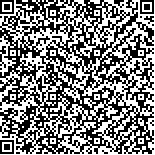| 引用本文: |
谢亚君,许时来,郑冬梅,邓海霞,张建影,曾劲松.消炎散对神经重症患者PICC术后机械性静脉炎的防治效果[J].湖南中医药大学学报,2020,40(7):897-902[点击复制] |
|
| |
|
|
| 本文已被:浏览 3072次 下载 1108次 |
| 消炎散对神经重症患者PICC术后机械性静脉炎的防治效果 |
| 谢亚君,许时来,郑冬梅,邓海霞,张建影,曾劲松 |
| (湖南中医药大学第一附属医院, 湖南 长沙 410007) |
| 摘要: |
| 目的 探讨消炎散外敷对神经重症患者经外周静脉置入中心静脉导管(peripherally inserted central catheter,PICC)后机械性静脉炎(mechanical phlebitis,MP)的防治作用及其机制。方法 将512例PICC术后的神经重症患者随机分为观察组和对照组,每组256例。对照组予以PICC常规护理,观察组在常规护理基础上于置管后24 h后加用消炎散外敷,每天1次,连敷3 d,观察两组患者7 d内MP的发生情况。将以上两组发生MP的患者再随机平均分为消炎散组和硫酸镁组,分别予以消炎散外敷和硫酸镁湿敷3 d,观察两组的临床疗效并采用彩色多普勒检测两组治疗前后置管静脉壁厚度,采用ELISA法检测两组患者治疗前后血清肿瘤坏死因子-α(tumor necrosis factor-α,TNF-α)、白细胞介素-8(interleukin 8,IL-8)水平。结果 观察组发生MP 24例(9.38%),对照组发生MP 48例(18.75%),两组比较差异有统计学意义(P<0.01);72例MP患者分组治疗结果显示:与治疗前比较,两组静脉壁厚度均明显减轻(P<0.05,P<0.01),消炎散组静脉壁厚度减轻差值明显大于硫酸镁组(P<0.01);消炎散组血清TNF-α、IL-8水平均明显下降(P<0.01),硫酸镁组血清TNF-α、IL-8水平均无明显下降(P>0.05);消炎散组临床疗效及总有效率、显效率均明显优于硫酸镁组(P<0.05,P<0.01)。结论 消炎散外敷可降低神经重症患者PICC术后MP的发生率,且对MP的临床疗效优于硫酸镁湿敷治疗,其机制可能与抑制炎症反应并减轻患者置管静脉壁水肿有关。 |
| 关键词: 机械性静脉炎 PICC 消炎散 静脉壁水肿 TNF-α IL-8 |
| DOI:10.3969/j.issn.1674-070X.2020.07.023 |
| 投稿时间:2020-03-25 |
| 基金项目:湖南省中医药科研计划项目(201969)。 |
|
| Prevention and Treatment of Mechanical Phlebitis after PICC for Severe Neurological Patients by Xiaoyan Powder |
| XIE Yajun,XU Shilai,ZHENG Dongmei,DENG Haixia,ZHANG Jianying,ZENG Jinsong |
| (The First Affiliated Hospital of Hunan University of Chinese Medicine, Changsha, Hunan 410007, China) |
| Abstract: |
| Objective To study the preventive and therapeutic effect of Xiaoyan Powder on mechanical phlebitis (MP) after peripherally inserted central catheter (PICC) in patients with severe neurological diseases, as well as its mechanism. Methods A total of 512 patients with severe neurological diseases after PICC were randomly divided into an observation group and a control group, with 256 cases in each group. The control group was nursed according to PICC nursing routine. The observation group was treated with Xiaoyan Powder for external application 24 hours after catheterization on the basis of routine nursing, once a day for 3 days. The occurrence of mechanical phlebitis within 7 days in the 2 groups was observed. The patients with mechanical phlebitis in the above 2 groups were randomly divided into a Xiaoyan Powder group and a magnesium sulfate group, and they were given Xiaoyan Powder external application and magnesium sulfate wet compress for 3 days respectively. The clinical efficacy of the 2 groups was compared and the wall edema of catheter vein was evaluated by color Doppler. Serum levels of tumor necrosis factor-α (TNF-α) and interleukin 8 (IL-8) were measured by ELISA before and after treatment. Results There were 24 cases of mechanical phlebitis in the observation group (9.38%) and 48 cases of mechanical phlebitis in the control group (18.76%). There was significant difference between the 2 groups (P<0.05). The results of divided treatment of 72 cases of MP showed that compared with before treatment, the thickness of vein wall in both groups was significantly reduced (P<0.05, P<0.01). The difference of the reduced thickness of vein wall in the Xiaoyan Powder group was significantly greater than that in the magnesium sulfate group (P<0.01). The levels of TNF-α and IL-8 in the the Xiaoyan Powder group were significantly decreased (P<0.01), and the levels of TNF-α and IL-8 in the magnesium sulfate group were not significantly decreased (P>0.05). The clinical efficacy, total effective rate, marked effective rate of the Xiaoyan powder group were better than that of the magnesium sulfate group (P<0.05, P<0.01). Conclusion Xiaoyan Powder external application can reduce the incidence of mechanical phlebitis after PICC in severe neurological patients, and its clinical efficacy is better than magnesium sulfate wet compress for mechanical phlebitis treatment. Its mechanism may be related to inhibiting inflammation and alleviating venous wall edema after catheterization. |
| Key words: mechanical phlebitis peripherally inserted central catheter Xiaoyan Powder vein wall edema tumor necrosis factor-α interleukin 8 |
|

二维码(扫一下试试看!) |
|
|
|
|




